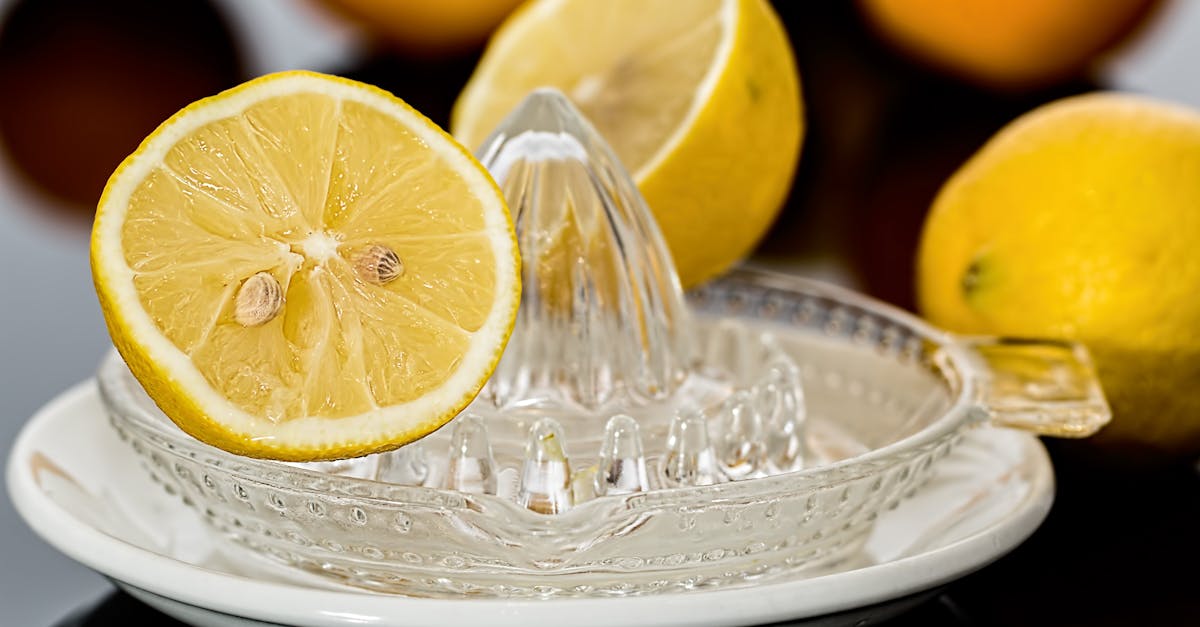Have you ever wondered what happens when you combine the tangy zest of lemon with the explosive power of gunpowder? This unusual mixture might sound like something out of a science fiction novel or a daring kitchen experiment, but there are real implications to consider. In this article, we will explore the fascinating interactions between lemon and gunpowder, revealing the surprising outcomes of this unexpected combination.
| Reaction | Description |
|---|---|
| Citrus Acid Reaction | The reaction of citric acid with certain components of gunpowder. |
| Potential for Combustion | How the presence of moisture can influence gunpowder’s stability. |
| pH Level Changes | The impact of acidic substances on the chemical balance of gunpowder. |
| Corrosive Effects | How lemon juice can affect the components of gunpowder. |
| Visual Changes | The aesthetic transformation when lemon interacts with gunpowder. |
| Safety Risks | Understanding the dangers of mixing these two substances. |
| Scientific Studies | Research surrounding the chemical reactions of acids and explosives. |
Citrus Acid Reaction
The citric acid found in lemons can react with certain components of gunpowder, particularly the nitrate compounds. This reaction can lead to the breakdown of some of these compounds, altering the effectiveness of the gunpowder. The citric acid can facilitate a chemical reaction that might not occur in a neutral environment, raising questions about the stability of gunpowder when exposed to acidic substances.

Potential for Combustion
<pWhen mixed with moisture from lemon juice, the stability of gunpowder can be compromised. While gunpowder is designed to be stable under normal conditions, the introduction of moisture can lead to unforeseen combustion risks. This highlights the importance of keeping explosive materials away from any liquid, including seemingly harmless substances like lemon juice.
pH Level Changes
The pH level of a mixture plays a crucial role in chemical reactions. Lemon juice is highly acidic, and when it interacts with gunpowder, it can create an environment that changes the chemical balance. Such changes could potentially affect how the gunpowder ignites or performs, making it a subject of interest for chemists and safety experts alike.

Corrosive Effects
Lemon juice is not only acidic but also has corrosive properties that can affect the materials that gunpowder is made from. The introduction of lemon juice can lead to the degradation of the gunpowder’s components over time, which can affect its performance. This reaction underscores the importance of proper storage and handling of explosive materials to prevent unwanted chemical interactions.

Visual Changes
<pWhen you mix lemon juice with gunpowder, you may notice some visual changes. The bright yellow of the lemon juice can contrast sharply with the dark grains of gunpowder, creating an interesting visual effect. However, this is not just a matter of aesthetics; the changes in color and consistency can indicate a chemical reaction taking place, which could be a precursor to more dangerous outcomes.
Safety Risks
Mixing lemon with gunpowder poses significant safety risks. Even though it may seem like a harmless experiment, the potential for unexpected reactions can lead to dangerous situations. It is crucial to approach any combination of explosive materials and acids with caution, as the results can be unpredictable and hazardous.

Scientific Studies
Various scientific studies have explored the interactions between acids and explosives, including gunpowder. Research indicates that acidic environments can affect the stability and performance of explosives, making this an important area of study for safety protocols in handling such materials. The findings from these studies emphasize the need for careful consideration when dealing with chemical reactions involving explosive compounds.

FAQ
What happens if you mix lemon juice with gunpowder?
Mixing lemon juice with gunpowder can lead to chemical reactions that alter the stability and effectiveness of the gunpowder. The citric acid in lemon juice can break down nitrate compounds and introduce moisture, which may compromise the gunpowder’s performance.
Is it safe to experiment with gunpowder?
No, experimenting with gunpowder is extremely dangerous and should not be done without proper training and safety precautions. It is important to handle explosive materials with care and respect to prevent accidents.
What are the components of gunpowder?
Gunpowder typically consists of potassium nitrate, charcoal, and sulfur. Each of these components plays a vital role in the combustion process and overall effectiveness of the gunpowder.
Can lemon juice be used as an explosive?
Lemon juice itself is not an explosive; however, its acidic properties can interact with certain explosive materials, potentially leading to dangerous reactions. It is not advisable to use lemon juice in any explosive context.
Where can I learn more about gunpowder safety?
For more information on gunpowder safety, you can visit trusted sources such as the [U.S. Bureau of Alcohol, Tobacco, Firearms and Explosives](https://www.atf.gov/) or [OSHA’s guidelines on hazardous materials](https://www.osha.gov/).
References:
– [U.S. Bureau of Alcohol, Tobacco, Firearms and Explosives](https://www.atf.gov/)
– [Occupational Safety and Health Administration (OSHA)](https://www.osha.gov/)
